Ditapis dengan
E-book British Activist Authors Addressing Children of Colour
‘Books are for white people.’ It’s an old idea, and historically, mostly a true one, at least in British publishing. Not only have most books, including children’s books, been written for and about white people in Britain, the scholarly and critical histories of literature, including children’s literature, have focused on these same books and their presumed-white audie…
- Edisi
- -
- ISBN/ISSN
- 9781350196049
- Deskripsi Fisik
- 215 hlm
- Judul Seri
- -
- No. Panggil
- 305.8 SAN b
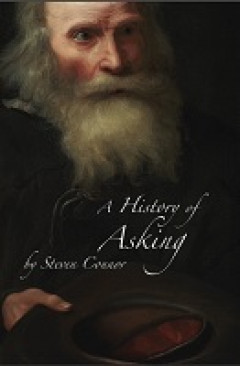
E-book A History of Asking
Asking is one of the simplest and most familiar of human actions, and has a right to be thought of as single most powerful and most variously cohering form of social-symbolic gesture. Because so much is at stake in the act of asking, asking, or asking for, almost anything, whether information, help, love or respect, can be asking for trouble, so a great deal of care must be taken with the ways …
- Edisi
- -
- ISBN/ISSN
- 9781785421280
- Deskripsi Fisik
- 238 halaman
- Judul Seri
- -
- No. Panggil
- 177 CON a
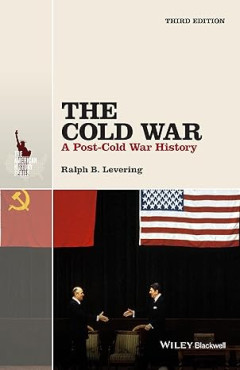
E-book The Cold War: A Post-Cold War History, Third Edition
Thoroughly updated in light of new scholarship, including revised sections on President Nixon’s policies in Vietnam and President Reagan’s approach to U.S.-Soviet relations Features six all new "counterparts" sections that juxtapose important historical figures to illustrate the contrasting viewpoints that characterized the Cold War Argues that the success of Western capitalism during th…
- Edisi
- -
- ISBN/ISSN
- 9781118848401
- Deskripsi Fisik
- 298 halaman
- Judul Seri
- -
- No. Panggil
- 940.54 LEV t
E-book Towards a Global Core Value System in Doctoral Education
Doctoral education has become a key element of the higher education landscape everywhere. With the spread of higher education massification and the rise of the global knowledge economy that began in the late twentieth century and continues today, doctoral education has expanded tremendously. There have been significant changes in doctoral education worldwide in the twent…
- Edisi
- -
- ISBN/ISSN
- 9781800080188
- Deskripsi Fisik
- 290 hlm
- Judul Seri
- -
- No. Panggil
- 375.001 NER t
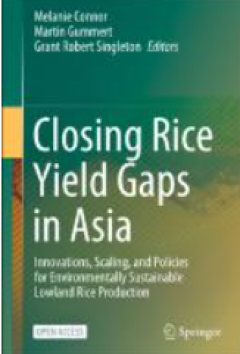
E-book Closing Rice Yield Gaps in Asia : Innovations, Scaling, and Policies f…
Agricultural development in Asia has undergone multiple phases and has experienced a remarkable evolution that also advanced general economic development. The region has become a major agricultural producer in the world due to the Green Revolution in the second half of the twentieth century (Hazell 2009). In particular, its rice exports have become essentia…
- Edisi
- -
- ISBN/ISSN
- 9783031379475
- Deskripsi Fisik
- 282 hlm
- Judul Seri
- -
- No. Panggil
- 338.1 BAL c
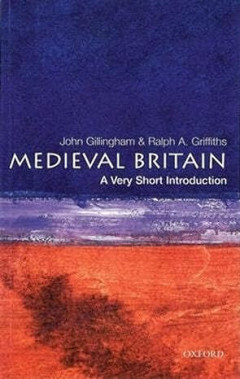
E-book Medieval Britain: A Very Short Introduction
A comprehensive and authoritative short guide, this Very Short Introduction to Medieval Britain covers the establishment of the Anglo-Norman monarchy in the early Middle Ages, through to England's failure to dominate the British Isles and France in the later Middle Ages. Out of the turbulence came stronger senses of identity in Scotland, Wales, and Ireland. Yet this was an age, too, of growing …
- Edisi
- -
- ISBN/ISSN
- 019285402X
- Deskripsi Fisik
- 194 halaman, ilus.
- Judul Seri
- -
- No. Panggil
- 936 GILL m
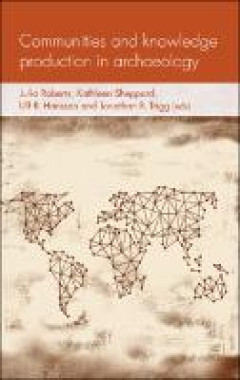
E-Book Communities and Knowledge Production in Archaeology
The dynamic processes of knowledge production in archaeology and elsewhere in the humanities and social sciences are increasingly viewed as the collaborative effort of groups, clusters and communities of researchers rather than the isolated work of so-called ‘instrumental’ actors. Shifting focus from the individual scholar to the wider social contexts of her work and the dynamic creative pr…
- Edisi
- -
- ISBN/ISSN
- 9781526134561
- Deskripsi Fisik
- 269 halaman
- Judul Seri
- -
- No. Panggil
- 930.1 ROB c
E-book Soundings : Documentary film and the listening experience
The capacity for sound to be powerfully evocative is unquestionable. An old photograph, or even a silent cine film from one’s childhood, brings back memories and can have strong emotional resonances. Listening to the ‘unseen sound’ of an old audio recording however, can almost without warning, engulf us in the feelings it triggers. The sound of a distant night-time …
- Edisi
- -
- ISBN/ISSN
- 9781862181564
- Deskripsi Fisik
- 303 hlm
- Judul Seri
- -
- No. Panggil
- 700 FIN s
E-book Social Theory after the Internet : Media, Technology and Globalization
Digital media have been responsible for some of the most wide-ranging changes in society over the past quarter-century. At the same time, there is little agreement in the social sciences about how these changes should be understood. One reason is increasing disciplinary specialization. For example, media and communication studies concentrates on specific areas such as the news or influe…
- Edisi
- -
- ISBN/ISSN
- 9781787351226
- Deskripsi Fisik
- 210 hlm
- Judul Seri
- -
- No. Panggil
- 303.4 SCH s
E-book The Web as History : Using Web Archives to Understand the Past and the…
The web has been with us for more than a quarter of a century. It has become a daily and ubiquitous source of information in many peoples’ lives around the globe. But what does it tell us about historical and social change? For a researcher in the twenty-second century, it will seem unimaginable that someone studying the twenty-first c…
- Edisi
- -
- ISBN/ISSN
- 9781911307563
- Deskripsi Fisik
- 298 hlm
- Judul Seri
- -
- No. Panggil
- 025.042 ACK t
E-book Traditional Cheesemaking Manual
Sub-Saharan Africa has the most rapidly growing population of any region of the world. The human population is about 5M0 million and it is expected to reach about 1300 million by the year 2025. In 1990 354 million people, 71% of the population of sub-Saharan Africa, lived in rural areas and by the year 2025 this figure will have increased by more than 68% to about 5W0 million. Cities in sub-Sah…
- Edisi
- -
- ISBN/ISSN
- 9290532734
- Deskripsi Fisik
- 52 hlm
- Judul Seri
- -
- No. Panggil
- 637.3 CON t
E-book Black rock : A tale of the selkirks
It was due to a mysterious dispensation of Providence, and a good deal to Leslie Graeme, that I found myself in the heart of the Selkirks for my Christmas Eve as the year 1882 was dying. It had been my plan to spend my Christmas far away in Toronto, with such Bohemian and boon companions as could be found in that cosmopolitan and kindly city. But Leslie Graeme changed all that, for, disco…
- Edisi
- -
- ISBN/ISSN
- -
- Deskripsi Fisik
- 271 hlm; 0.4 mb
- Judul Seri
- -
- No. Panggil
- 823 CON b
E-book Young hunters of the lake
The boys lived in the town of Fairview, a country place, located on the Rocky River, about ten miles above a fine sheet of water called Lake Cameron. The town boasted of a score of stores, several churches, a hotel, and a neat railroad station at which, during the summer months, as high as ten trains stopped daily. On the outskirts of the town were a saw mill, a barrel factory, and several …
- Edisi
- -
- ISBN/ISSN
- -
- Deskripsi Fisik
- 277 hlm; 0.4 mb
- Judul Seri
- -
- No. Panggil
- 823 BON y
E-book The lilac girl
Two men were sitting beside a camp-fire at Saddle Pass, a shallow notch in the lower end of the Sangre de Cristo Range in southern Colorado. Although it was the middle of June and summer had come to the valleys below, up here in the mountains the evenings were still chill, and the warmth of the crackling fire felt grateful to tired bodies. Daylight yet held, although it was fast deepening t…
- Edisi
- -
- ISBN/ISSN
- -
- Deskripsi Fisik
- 190 hlm; 0.3 mb
- Judul Seri
- -
- No. Panggil
- 823 BAR t

Kamus akuntansi.
Judul asli : Dictionary of accounting
- Edisi
- Edisi kedua
- ISBN/ISSN
- -
- Deskripsi Fisik
- 161 hlm. ;15x23 cm.
- Judul Seri
- -
- No. Panggil
- 657.03 EST k

Kimia dasar : Prinsip dan terapan modern
- Edisi
- -
- ISBN/ISSN
- -
- Deskripsi Fisik
- -
- Judul Seri
- -
- No. Panggil
- 540 PET k
- Edisi
- -
- ISBN/ISSN
- -
- Deskripsi Fisik
- -
- Judul Seri
- -
- No. Panggil
- 540 PET k
 Karya Umum
Karya Umum  Filsafat
Filsafat  Agama
Agama  Ilmu-ilmu Sosial
Ilmu-ilmu Sosial  Bahasa
Bahasa  Ilmu-ilmu Murni
Ilmu-ilmu Murni  Ilmu-ilmu Terapan
Ilmu-ilmu Terapan  Kesenian, Hiburan, dan Olahraga
Kesenian, Hiburan, dan Olahraga  Kesusastraan
Kesusastraan  Geografi dan Sejarah
Geografi dan Sejarah